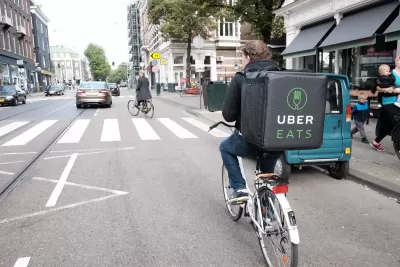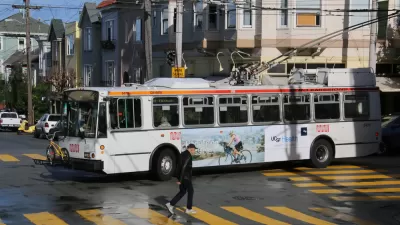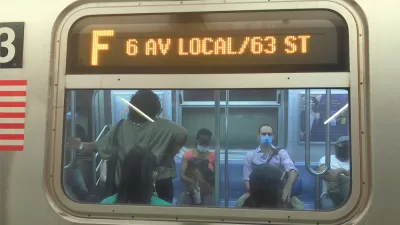Uber and Airbnb both announced massive layoffs this week, after Lyft did the same last week, as the coronavirus pandemic took a toll on very contemporary corners of the economy.

Two companies that rose to market and cultural dominance in the wake of the Great Recession are among the earliest to deal with the consequences of the coronavirus pandemic, as Airbnb and Uber this week announced massive layoffs.
Theodore Schleifer reports for Recode: "Brian Chesky, the company’s founder and CEO, told staff on Tuesday that the company’s revenue would be halved and that it would terminate about 1,900 of its 7,500 staff members — one of the largest layoffs in total that Silicon Valley has seen since the Covid-19 pandemic struck.
According to Schleifer, Airbnb was considered one of the most financial secure of the "unicorns" calling the Silicon Valley home. Chesky told company employees that the company is expecting to bring in half the revenue it expected to this year.
A day later, news broke that Uber would lay off even more of its employees. Brian Heater reports for TechCrunch: In an SEC filing dating back to last week, Uber disclosed plans to layoff 3,700 employees. The figure amounts to around 14% percent of the ride hailing giant’s total workforce.
Citing a letter to staff from Uber CEO Dara Khosrowshahi, Heater is able to report that the cuts will come from community operations and recruiting. "Uber will also be closing around 40 percent of its Greenlight locations — used for in-person driver assistance," according to the article.
Last week, Lyft announced layoffs for 1,000 employees, as reported by Faiz Siddiqui.
The layoffs amount to a massive blow to the technology sector sometimes known as the gig, or sharing, economy, which rose to prominence at least in part due to economic benefits offered to users during the austerity of the Great Recession. All three companies had a significant role in reshaping the landscape of the housing and transportation markets in ways that couldn't have been predicted before the Great Recession.
More on the potential for the coronavirus to reshape the landscape for housing and transportation, and thus the future of these companies, is included in a follow up article by Rachel Lerman.
FULL STORY: Uber to cut 3,700 jobs, adding to a growing number of tech layoffs

Maui's Vacation Rental Debate Turns Ugly
Verbal attacks, misinformation campaigns and fistfights plague a high-stakes debate to convert thousands of vacation rentals into long-term housing.

Planetizen Federal Action Tracker
A weekly monitor of how Trump’s orders and actions are impacting planners and planning in America.

In Urban Planning, AI Prompting Could be the New Design Thinking
Creativity has long been key to great urban design. What if we see AI as our new creative partner?

King County Supportive Housing Program Offers Hope for Unhoused Residents
The county is taking a ‘Housing First’ approach that prioritizes getting people into housing, then offering wraparound supportive services.

Researchers Use AI to Get Clearer Picture of US Housing
Analysts are using artificial intelligence to supercharge their research by allowing them to comb through data faster. Though these AI tools can be error prone, they save time and housing researchers are optimistic about the future.

Making Shared Micromobility More Inclusive
Cities and shared mobility system operators can do more to include people with disabilities in planning and operations, per a new report.
Urban Design for Planners 1: Software Tools
This six-course series explores essential urban design concepts using open source software and equips planners with the tools they need to participate fully in the urban design process.
Planning for Universal Design
Learn the tools for implementing Universal Design in planning regulations.
planning NEXT
Appalachian Highlands Housing Partners
Mpact (founded as Rail~Volution)
City of Camden Redevelopment Agency
City of Astoria
City of Portland
City of Laramie





























